Jean Bethke Elshtain Quotes & Sayings
Enjoy the top 12 famous quotes, sayings and quotations by Jean Bethke Elshtain.
Famous Quotes By Jean Bethke Elshtain
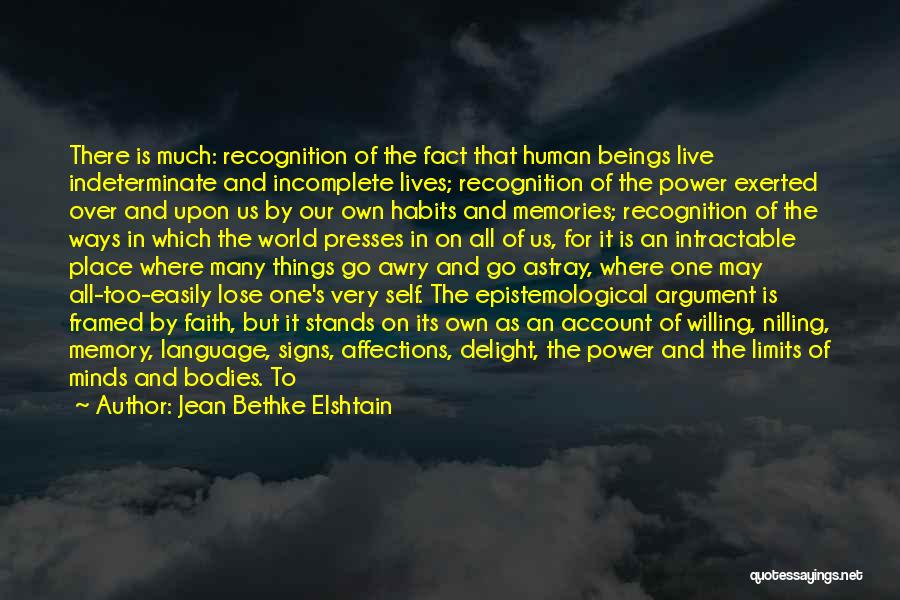
There is much: recognition of the fact that human beings live indeterminate and incomplete lives; recognition of the power exerted over and upon us by our own habits and memories; recognition of the ways in which the world presses in on all of us, for it is an intractable place where many things go awry and go astray, where one may all-too-easily lose one's very self. The epistemological argument is framed by faith, but it stands on its own as an account of willing, nilling, memory, language, signs, affections, delight, the power and the limits of minds and bodies. To the extent that a prideful philosophy refuses to accept these, Augustine would argue, to that extent philosophy hates the human condition itself. — Jean Bethke Elshtain
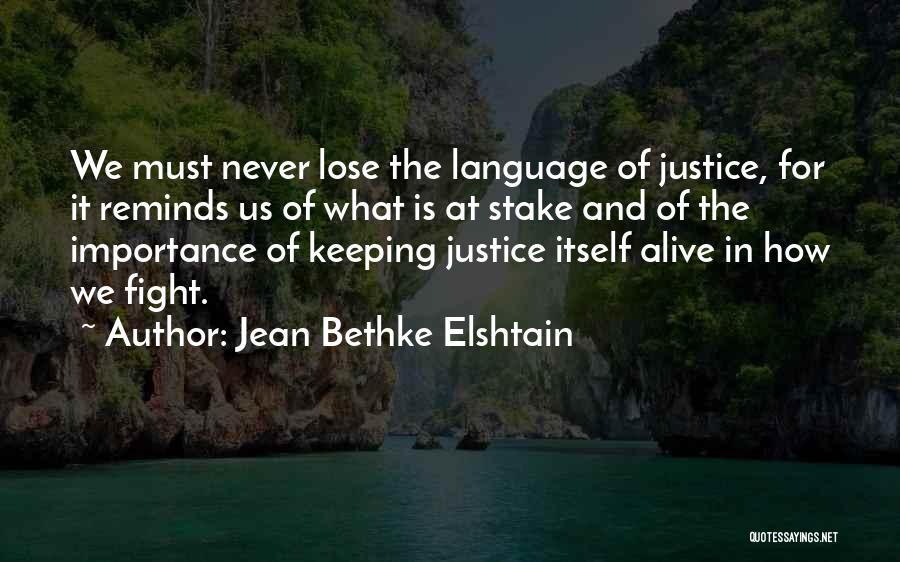
We must never lose the language of justice, for it reminds us of what is at stake and of the importance of keeping justice itself alive in how we fight. — Jean Bethke Elshtain
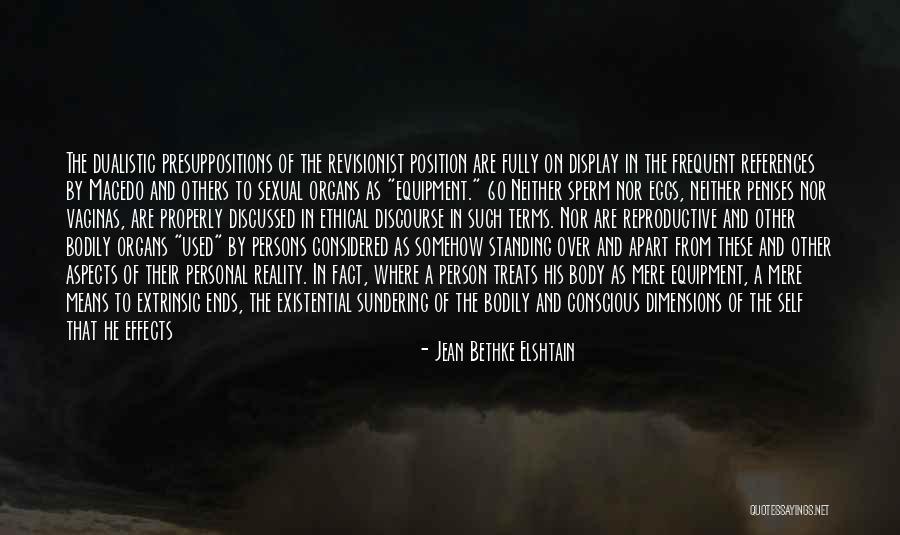
The dualistic presuppositions of the revisionist position are fully on display in the frequent references by Macedo and others to sexual organs as "equipment." 60 Neither sperm nor eggs, neither penises nor vaginas, are properly discussed in ethical discourse in such terms. Nor are reproductive and other bodily organs "used" by persons considered as somehow standing over and apart from these and other aspects of their personal reality. In fact, where a person treats his body as mere equipment, a mere means to extrinsic ends, the existential sundering of the bodily and conscious dimensions of the self that he effects by his choices and actions brings with it a certain self-alienation, a damaging of the good of personal self-integration. — Jean Bethke Elshtain
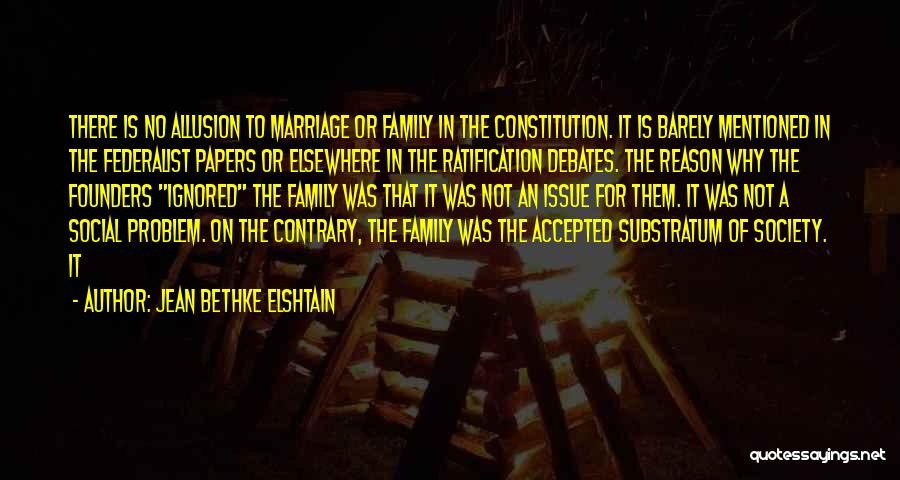
There is no allusion to marriage or family in the Constitution. It is barely mentioned in the Federalist Papers or elsewhere in the ratification debates. The reason why the founders "ignored" the family was that it was not an issue for them. It was not a social problem. On the contrary, the family was the accepted substratum of society. It — Jean Bethke Elshtain
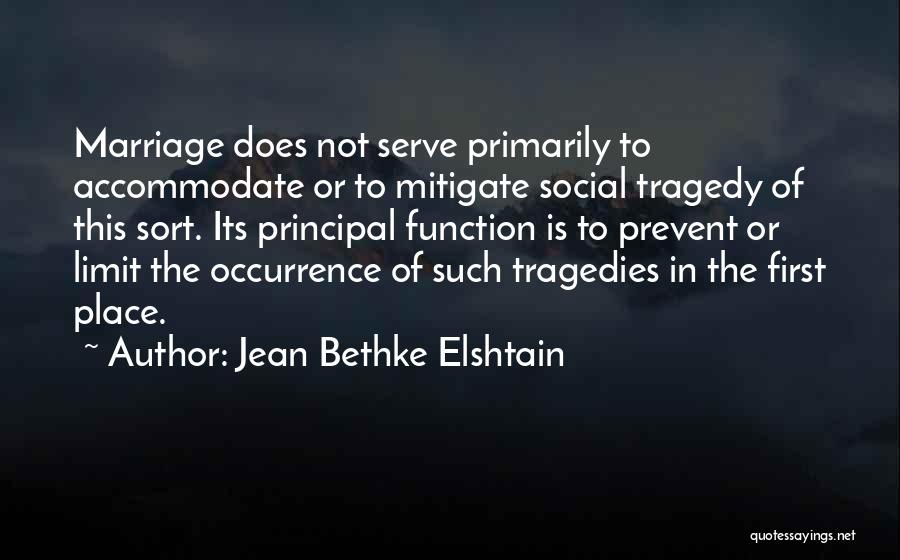
Marriage does not serve primarily to accommodate or to mitigate social tragedy of this sort. Its principal function is to prevent or limit the occurrence of such tragedies in the first place. — Jean Bethke Elshtain
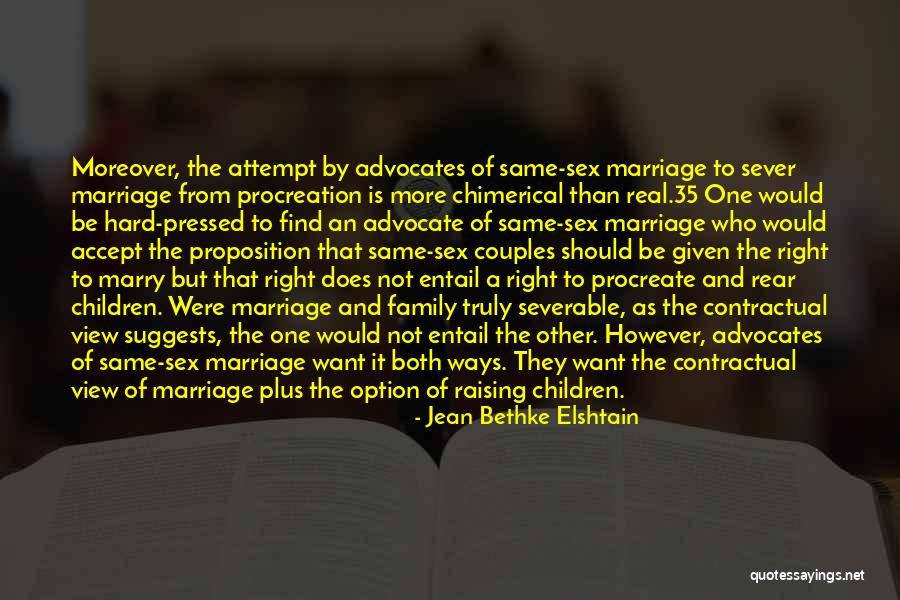
Moreover, the attempt by advocates of same-sex marriage to sever marriage from procreation is more chimerical than real.35 One would be hard-pressed to find an advocate of same-sex marriage who would accept the proposition that same-sex couples should be given the right to marry but that right does not entail a right to procreate and rear children. Were marriage and family truly severable, as the contractual view suggests, the one would not entail the other. However, advocates of same-sex marriage want it both ways. They want the contractual view of marriage plus the option of raising children. — Jean Bethke Elshtain
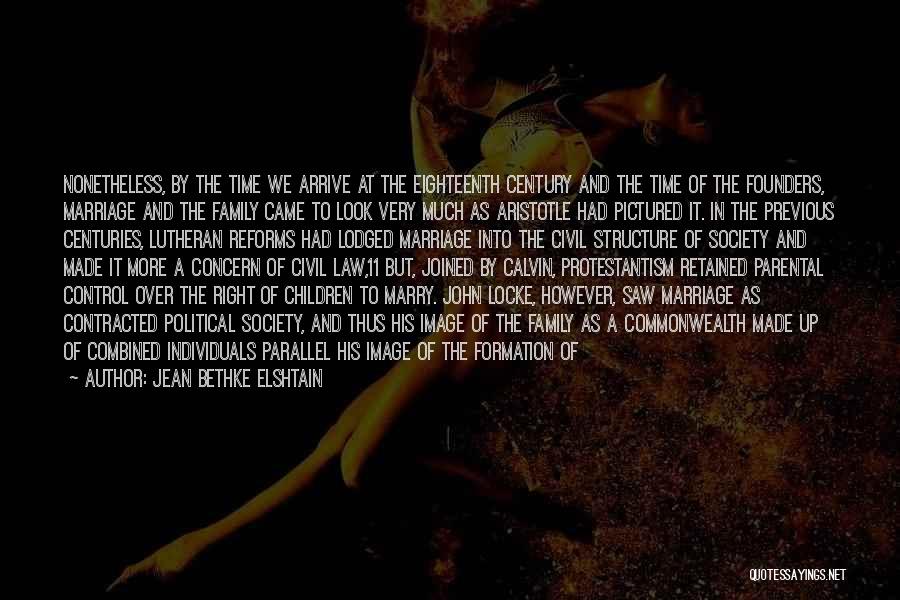
Nonetheless, by the time we arrive at the eighteenth century and the time of the founders, marriage and the family came to look very much as Aristotle had pictured it. In the previous centuries, Lutheran reforms had lodged marriage into the civil structure of society and made it more a concern of civil law,11 but, joined by Calvin, Protestantism retained parental control over the right of children to marry. John Locke, however, saw marriage as contracted political society, and thus his image of the family as a commonwealth made up of combined individuals parallel his image of the formation of the larger political commonwealth as well.12 Furthermore, Locke declares that parents are, "by the law of nature, under an obligation to preserve, nourish and educate" their children.13 Since government is instituted to enforce the laws of nature, Locke states that government should make laws that enforce "the security of the marriage bed.'14 What — Jean Bethke Elshtain
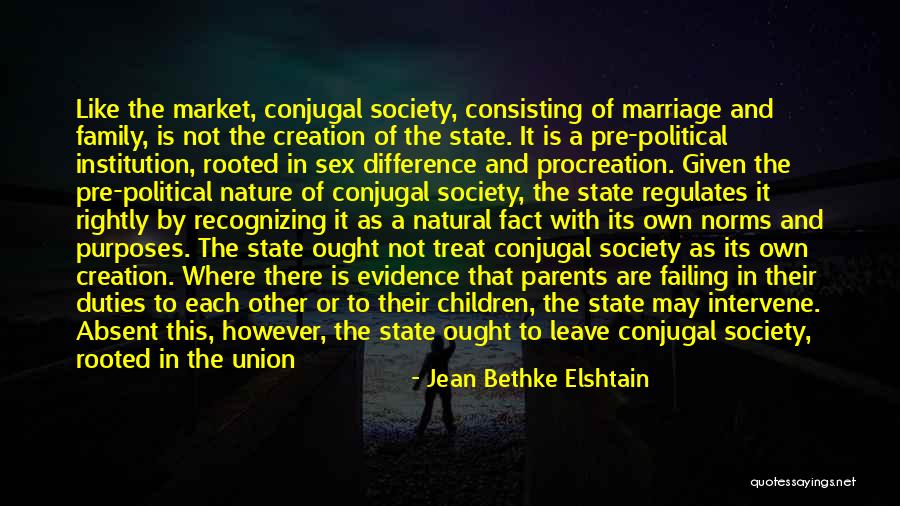
Like the market, conjugal society, consisting of marriage and family, is not the creation of the state. It is a pre-political institution, rooted in sex difference and procreation. Given the pre-political nature of conjugal society, the state regulates it rightly by recognizing it as a natural fact with its own norms and purposes. The state ought not treat conjugal society as its own creation. Where there is evidence that parents are failing in their duties to each other or to their children, the state may intervene. Absent this, however, the state ought to leave conjugal society, rooted in the union of one man and one woman, alone. — Jean Bethke Elshtain
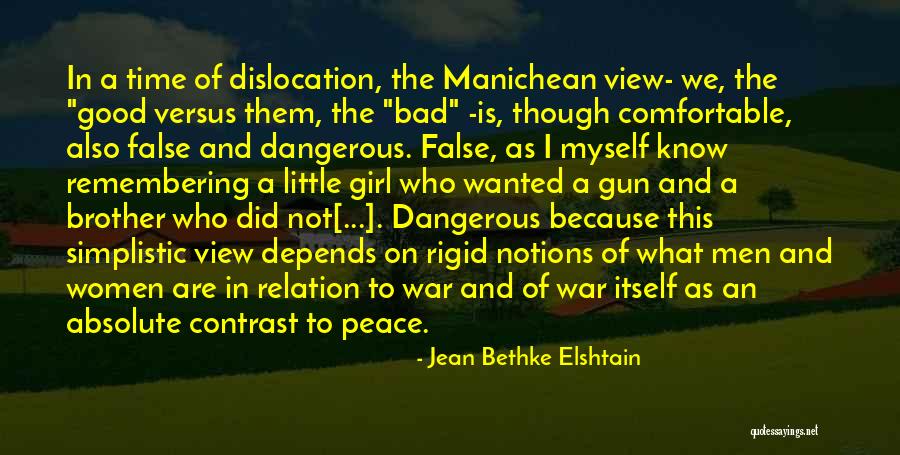
In a time of dislocation, the Manichean view- we, the "good versus them, the "bad" -is, though comfortable, also false and dangerous. False, as I myself know remembering a little girl who wanted a gun and a brother who did not[...]. Dangerous because this simplistic view depends on rigid notions of what men and women are in relation to war and of war itself as an absolute contrast to peace. — Jean Bethke Elshtain
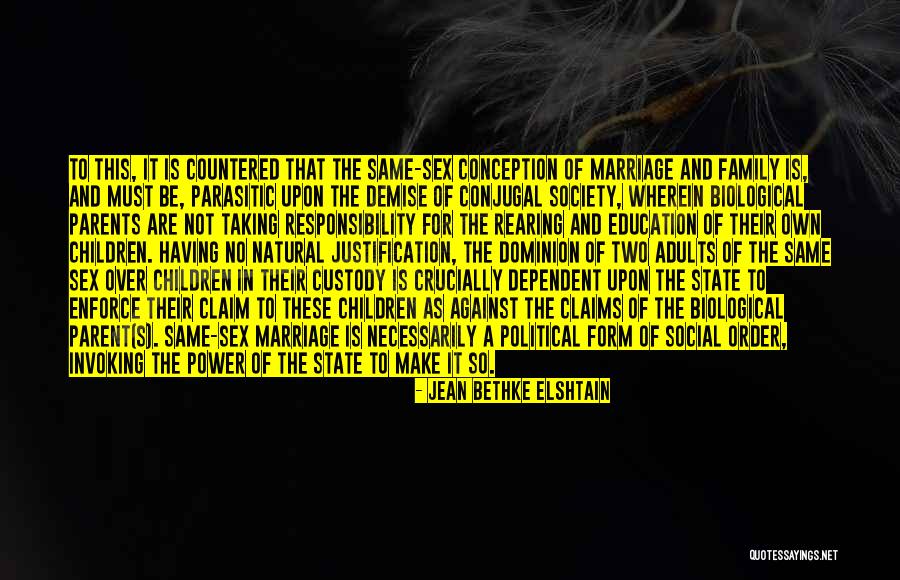
To this, it is countered that the same-sex conception of marriage and family is, and must be, parasitic upon the demise of conjugal society, wherein biological parents are not taking responsibility for the rearing and education of their own children. Having no natural justification, the dominion of two adults of the same sex over children in their custody is crucially dependent upon the state to enforce their claim to these children as against the claims of the biological parent(s). Same-sex marriage is necessarily a political form of social order, invoking the power of the state to make it so. — Jean Bethke Elshtain
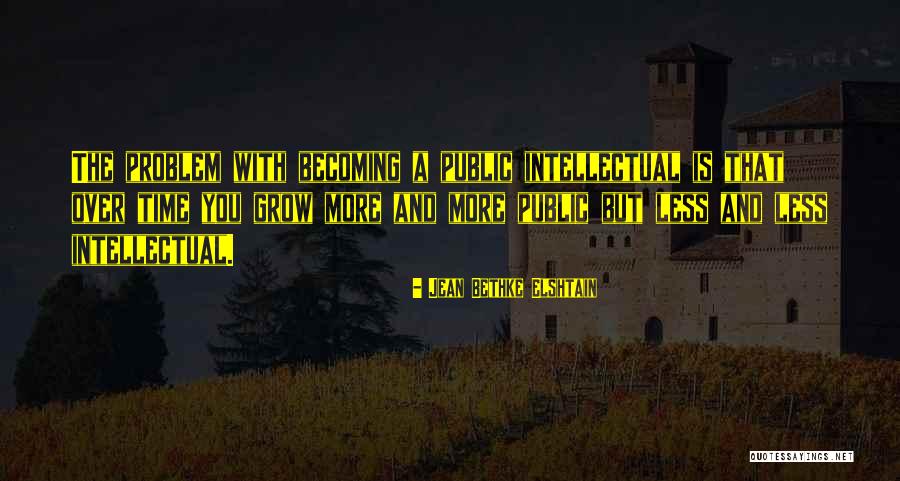
The problem with becoming a public intellectual is that over time you grow more and more public but less and less intellectual. — Jean Bethke Elshtain
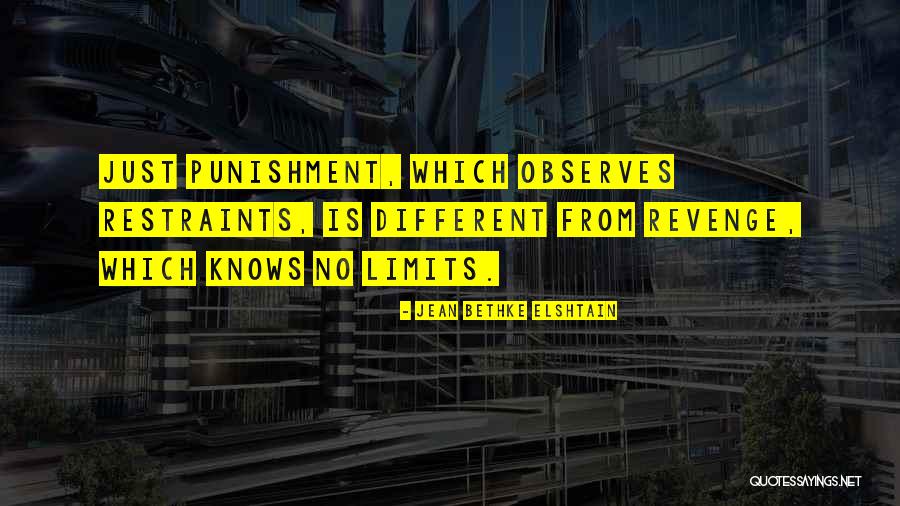
Just punishment, which observes restraints, is different from revenge, which knows no limits. — Jean Bethke Elshtain





